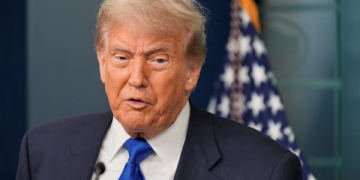The cost of medicines has been rising by leaps and bounds and in many cases these are sold at prohibitive prices. The common man is hit hard and often has to pay hefty amounts for treatment. The desire for maximising profit among many pharmaceutical companies manufacturing branded drugs is such that the prices of medicines are pegged way too higher than the manufacturing costs. On the other hand, it also has to be acknowledged that the cost of research and discovering combinations of chemicals that work against a particular ailment must be high for top pharma companies. These high research costs are generally bypassed by smaller companies producing generic drugs which they can manufacture without long drawn research and chemical trials on the actual effectiveness of different combinations of drugs. Since the patents of most drugs from original manufacturers expire due to a built-in lifespan, generic manufacturers are then free to produce the same drugs without research or even randomized trials. Because the laws in India do not make dissolution testing mandatory for generic manufacturers, the efficacy of the generic drug is in question, compared to the original.
Then there is also the issue of long and complex generic names of drugs and more importantly the combinations with other chemicals in varying percentages of a particular drug. The task of writing down the generic names with the exact combinations of varied chemicals would become near impossible for doctors. This would also create a situation where patients, unable to decipher the particulars, are left at the mercy of the pharmacist at the counter who might choose to present the drug whose manufacturer offers the highest commission. These more often than not, would be newer companies that are testing their drugs rather than reputed established brands. As a fallout, the patient might become the scapegoat. A time seems to be coming when pharmacies, in place of doctors, will be courted by pharmaceutical companies for pushing their brands.
The Union Health Ministry has dropped broad hints that a quid pro quo exists between a section of physicians and many pharmaceutical companies. It is said that palms are greased by way of commissions in cash and kind. The over 60-page guidelines for the professional conduct of registered doctors of modern medicine recently notified by the country’s apex regulator National Medical Commission (NMC) contain provisions ranging from what medical degrees doctors can mention on their prescription pads to the kind of advertisements they can put out, the records they must keep and the way they treat patients through tele-consultation. This would also imply that doctors might be compelled to spend much more time maintaining documents that would be required by the government rather than treating patients or upgrading their skills. The guidelines also warn doctors against receiving commissions from pharmacies and diagnostic laboratories as well as attending conferences sponsored by pharmaceutical companies. Here, it may be noted that every other country encourages its medical fraternity to stay updated on the latest development in medical science by attending national and international conferences and meetings which are mostly sponsored by pharma companies. The government of India would not be able to state when it last organized any conference of doctors where papers were presented about innovations and improvements. By stopping the inflow of knowledge, the new guidelines will hinder the growth of medical care in India.
According to the new guidelines, all doctors will mandatorily be required to prescribe generic drugs failing which they will be penalised and even their licence to practice may also be suspended.
What has triggered vehement protests from the medical fraternity is the guideline urging doctors to use generic drugs and inform patients that they are equivalent to branded medicines. Doctors are asked to encourage people to purchase drugs from Jan Aushadhi Kendras and other generic drug outlets.
The regulations notified on August 2 stated, “Generic medicines are 30 to 80 per cent cheaper than branded drugs. Hence, prescribing generic medicines may overtly bring down health care costs and improve access to quality care.” However, in a recent study, it has been found that generic drugs have a markup of about 1000 percent over manufacturing costs. This may be due to the fact that these manufacturers hardly have any costs of research, innovation and testing and their efficacy would be doubtful. In other words, the government wants to drag allopathic medicine down to the level of untested Ayurveda and Ayush medicines and on the other hand put a leash to control doctors and the whole of the medical fraternity.
The move to force doctors to prescribe only generic medicines is facing a storm of protest from the medical community so much so that the Indian Medical Association (IMA) has compared it to “running trains without tracks.” It believes the matter is of great concern since it directly impacts patients’ care and safety. There is justification to the criticism that the government has no mechanism to ensure quality control for generic drugs by local companies which have far less capital to invest than big pharmaceutical companies.
The question is who will be held responsible if such medicines do not prove to be efficacious or negatively impact healthcare.






































